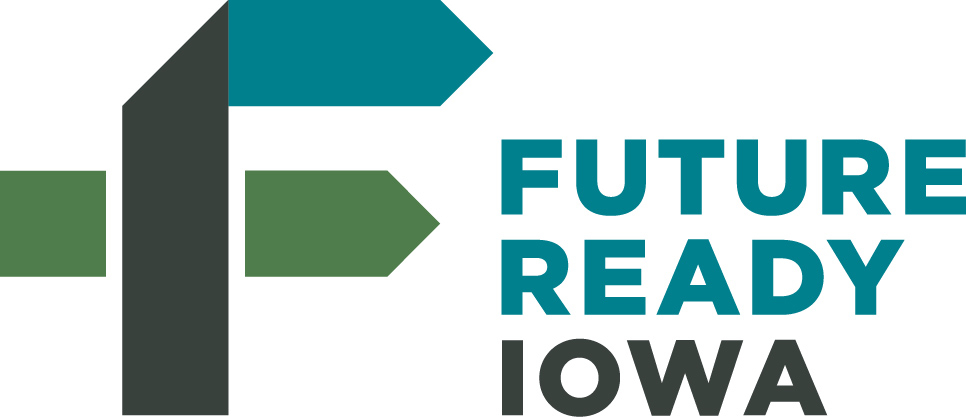
By: Corey Rogers, Digital Learning Consultant at Grant Wood Area Education Agency
For decades, technology has become increasingly important in the lives of Iowans. Knowing the trend will only continue, the Iowa Governor’s STEM Advisory Council offers a number of computer science programs and initiatives, including STEM Scale-Up Program, STEM BEST Program, STEM Teacher Externships and Computer Science is Elementary. The STEM Council is also collaborating with the Iowa Department of Education, Iowa Association of Business and Industry, Iowa Business Council, Technology Association of Iowa and Computer Science Teachers Association Iowa chapter to elevate computer science during Computer Science Education Week (CSEdWeek), held December 6-12.
This work has a direct impact on thousands of Iowa students, giving them access to new educational experiences in computer science and technology. These experiences teach not only technical skills but essential life skills like problem solving, critical thinking and creativity.
Corey Rogers is a Digital Learning Consultant at the Grant Wood Area Education Agency, a STEM advisory board member for the Southeast region and the president of the Computer Science Teachers Association (CSTA) Iowa Chapter. She is passionate about bringing Computer Science to all students in Iowa and helping teachers understand how their current lessons already connect to computer science.
Learn more about Corey, her work and her vision for computer science in Iowa below.
Tell us about yourself.
I currently work as a Digital Learning Consultant at Grant Wood Area Education Agency supporting teachers with both technology integration and computer science education. I have experience as a middle school STEM & computer science teacher, media specialist and school improvement consultant.
I earned a computer science and mathematics undergraduate degree from Grand Valley State University in Allendale, MI and a master’s degree in educational leadership from Concordia University in Ann Arbor, MI.
I grew up in Houghton Lake, which is a rural, vacation town in the northern lower peninsula of Michigan. I taught in the suburbs of Detroit before relocating to Waterloo, Iowa. I currently live in Iowa City with my husband, Glen, and my kids, Rory (15) and Howard (12). I’m an avid reader, fan of podcasts, lover of overcomplicated board games, proud Ravenclaw and yogi. My pronouns are she/her.
How did you get involved with the Southeast STEM Advisory Board?
I first served as the AEA representative on the North Central STEM Advisory Board when I was a school improvement consultant at Central Rivers AEA. As a former teacher, I am passionate about providing high-quality learning experiences for all students. I am especially determined to provide role models and pathways for underrepresented students, including females and minorities. When my family relocated to Iowa City, I was no longer able to serve on the North Central Advisory Board but was fortunate enough to transition to the AEA seat on the Southeast board.
How does access to quality computer science education benefit Iowa students?
Access to quality computer science education helps students understand that computers aren’t magic. It empowers them—no matter what career path they take—to understand that devices and software are designed by people and can be improved upon.
It allows students to ask informed questions about how computing artifacts work and to evaluate their impact on individuals and society. The problem solving and critical thinking skills learned such as decomposing problems, identifying patterns, collaboratively refining projects, and evaluating bias and accessibility transfer across career fields.
The Computer Science is Elementary program from the STEM Council has expanded from one school to at least 12 other schools across the state. How has watching that progress made you feel as an advocate for computer science education?
Witnessing the progress and growth of the 12 Computer Science is Elementary schools is very exciting! It’s so important for us to have models in our own state of what computer science instruction can be. I am grateful to the educators and administrators that have dedicated their time and energy to trailblazing the path and look forward to opportunities to learn from them as we continue to grow computer science education in Iowa.
What do you envision as the future of computer science education in Iowa?
I envision all of Iowa’s students having positive and engaging experiences with Computer Science throughout their PreK-12 school careers. This includes interacting with a variety of Iowa CS professionals as role models and opportunities for students to experience computer science concepts embedded into their core content area learning.
Ideally, our students would have opportunities to use computer science as means to demonstrate learning in content areas and to address issues in their communities. Further, I envision all of Iowa’s teachers having access to high-quality computer science professional development and coaching so they can build their identity and confidence as CS educators.
Do you have advice for educators who want to increase opportunities for their students to explore computer science?
My advice to educators looking to increase CS opportunities for students is to add one CS-related experience, no matter how big or small. Educators can start by inviting a business partner to speak to students. They can host an hour of code activity. They can sponsor a coding club. In my experience, all the little things educators add for students eventually add up to full programs.
My other suggestion would be to ask for help. CSTA Iowa connects CS educators across the state. Membership is free and provides resources, professional development, and opportunities for networking and collaboration with educators across Iowa. Also, all nine AEAs have consultants dedicated to supporting computer science.


